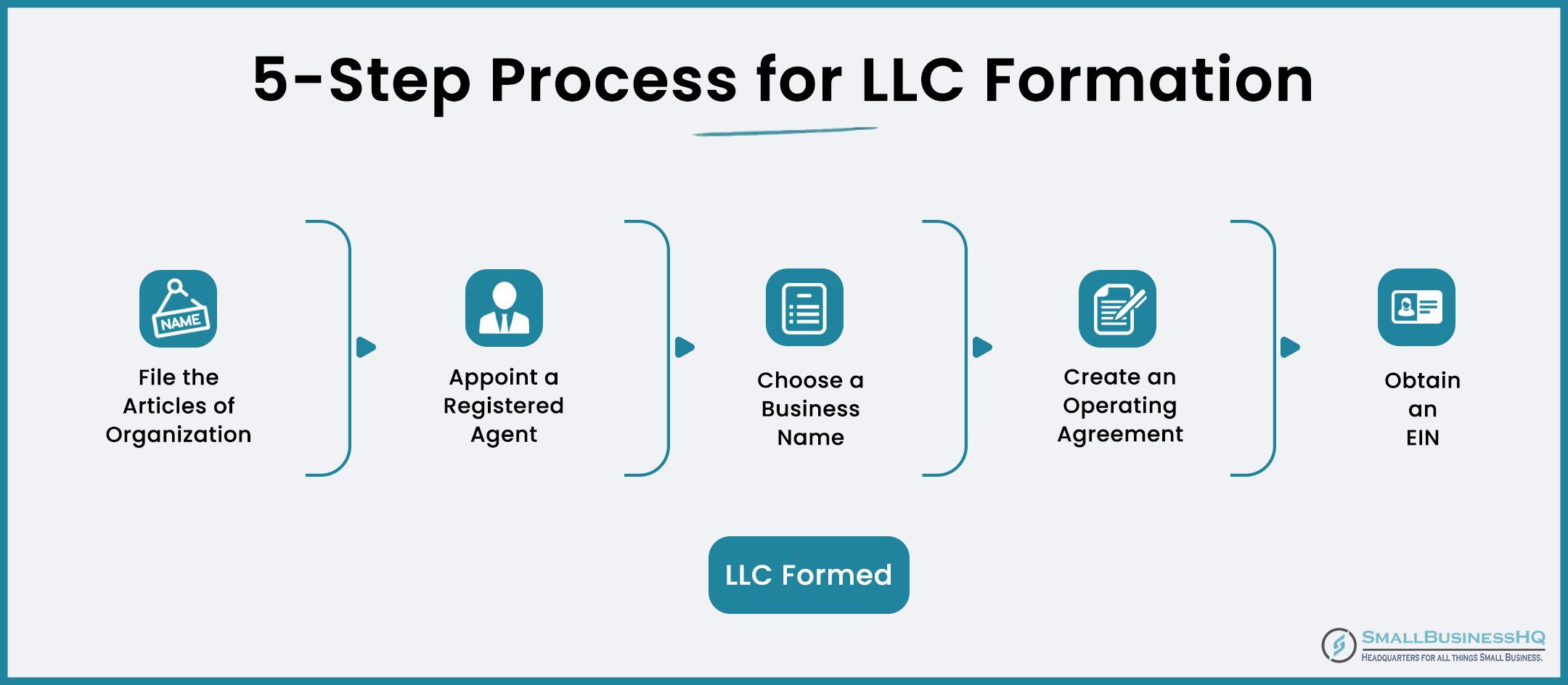In the fast-paced world of digital transformation, the backbone of any enterprise’s infrastructure is its server hardware. The evaluation of server hardware quality and performance is a critical process that determines the success of your IT strategy. As businesses continue to rely on data-driven decision-making, the importance of robust, reliable, and high-performance server hardware cannot be overstated. In this comprehensive guide, we will walk you through the meticulous process of how we evaluate server hardware quality and performance, ensuring that you make informed decisions that align with your organizational goals.
The Importance of Server Hardware in Modern Enterprises
The importance of server hardware in modern enterprises cannot be overstated. As businesses increasingly rely on digital technologies to drive operations, communicate with clients, and manage data, the quality and performance of server hardware have become central to achieving and maintaining competitive advantages. Here’s a closer look at why server hardware is so crucial in today’s business landscape:
1. Foundation of IT Infrastructure
Server hardware is the backbone of any IT infrastructure. It supports various critical functions, including data storage, processing, and the execution of applications. Without reliable server hardware, the entire IT ecosystem is at risk, potentially leading to significant disruptions in business operations.
2. Enhanced Performance and Productivity
High-quality server hardware is essential for ensuring that enterprise applications run smoothly and efficiently. Whether it’s handling large databases, running complex algorithms, or supporting a high volume of transactions, robust server hardware can significantly enhance overall performance and productivity. This directly translates to faster decision-making, improved customer service, and more efficient operations.
3. Scalability and Flexibility
As businesses grow, their IT needs evolve. Modern server hardware is designed with scalability in mind, allowing enterprises to expand their computing power, storage capacity, and network capabilities without the need for a complete overhaul of their existing infrastructure. This flexibility is critical for businesses looking to stay agile and responsive in a rapidly changing market environment.
4. Data Security and Compliance
With increasing concerns around data breaches and stringent regulatory requirements, the security features of server hardware have become a top priority. Advanced server hardware includes built-in security measures such as encryption, secure boot, and Trusted Platform Module (TPM) to protect sensitive data from unauthorized access and ensure compliance with industry standards.
5. Cost Efficiency and Long-Term Savings
Investing in high-quality server hardware may require a significant initial outlay, but it often leads to long-term cost savings. Reliable hardware reduces the risk of downtime, minimizes the need for frequent repairs or replacements, and lowers energy consumption. Over time, these savings can far outweigh the initial investment, making it a cost-effective choice for businesses.
6. Supporting Digital Transformation
As enterprises undergo digital transformation, the demands on their IT infrastructure increase exponentially. Server hardware capable of handling big data analytics, artificial intelligence (AI), and machine learning (ML) workloads is crucial for driving innovation and maintaining a competitive edge. The right server hardware enables businesses to leverage advanced technologies, optimize operations, and deliver better customer experiences.
7. Business Continuity and Disaster Recovery
In the event of a disaster or unexpected outage, having reliable server hardware is critical to maintaining business continuity. Server hardware with redundancy features, such as redundant power supplies and RAID configurations, ensures that data is protected and systems remain operational, even in adverse conditions. This resilience is essential for avoiding costly downtime and maintaining customer trust.
8. Supporting Remote Work and Collaboration
The shift towards remote work has placed additional demands on IT infrastructure, making server hardware more important than ever. Servers that can efficiently handle remote access, virtual desktops, and collaborative tools are vital for ensuring that employees can work effectively from anywhere. This capability not only enhances productivity but also supports a flexible and adaptive work environment.
9. Future-Proofing the Enterprise
Investing in modern server hardware helps future-proof an enterprise’s IT infrastructure. As technology continues to evolve, having hardware that is compatible with the latest software updates, security protocols, and technological advancements ensures that the business remains competitive and can quickly adapt to new opportunities and challenges.
10. Competitive Advantage
In today’s fast-paced business environment, having a reliable and high-performance IT infrastructure can provide a significant competitive advantage. Server hardware that supports faster processing, more efficient data management, and better security allows businesses to operate more effectively than their competitors. This competitive edge can be the difference between leading the market and falling behind.
Key Criteria for Evaluating Server Hardware Quality
Evaluating server hardware involves analyzing several key criteria to ensure that the hardware will meet the performance demands of your business applications. Below, we discuss the most critical factors to consider.
1. Processor Performance: The Brain of the Server
The processor, often referred to as the CPU, is the brain of the server. It handles all the instructions it receives from hardware and software, making it one of the most critical components to evaluate.
Choosing the Right Processor Architecture
When evaluating processor performance, we consider the architecture, which dictates how the processor handles tasks. Modern processors are often based on multi-core architectures, enabling them to handle multiple processes simultaneously. For enterprise applications that require intensive processing power, choosing a server with a high-performance multi-core CPU is essential.
Clock Speed and Core Count
Clock speed, measured in GHz, determines how fast the CPU can execute instructions, while the core count dictates how many tasks it can handle concurrently. Servers designed for high-performance computing typically feature CPUs with high clock speeds and multiple cores, ensuring that they can handle demanding workloads with ease.
2. Memory (RAM): The Short-Term Data Storage
Memory, or RAM, is another critical factor in evaluating server hardware. It temporarily stores data that the CPU needs quick access to, making it essential for smooth and efficient operations.
Memory Capacity and Type
The capacity of RAM is crucial, especially for applications that require large amounts of data to be processed quickly. We evaluate servers based on their RAM capacity, ensuring that it matches the requirements of your applications. Additionally, the type of RAM (e.g., DDR4, DDR5) also plays a role in performance, with newer types offering faster data transfer rates and improved energy efficiency.
Error-Correcting Code (ECC) Memory
For enterprise-level applications, we recommend servers equipped with Error-Correcting Code (ECC) memory. ECC RAM automatically detects and corrects common types of internal data corruption, ensuring data integrity and system stability, which is critical for mission-critical applications.
3. Storage Solutions: Speed and Reliability
Storage is where your data resides, and its performance directly impacts how quickly your applications can access and retrieve information.
Solid-State Drives (SSD) vs. Hard Disk Drives (HDD)
When evaluating storage options, we compare SSDs and HDDs. SSDs, while more expensive, offer significantly faster read/write speeds compared to HDDs, making them ideal for applications requiring high-speed data access. HDDs, on the other hand, provide higher storage capacities at a lower cost, making them suitable for data archiving and less performance-intensive tasks.
Redundant Array of Independent Disks (RAID)
For businesses that require high availability and redundancy, we assess the server’s RAID capabilities. RAID configurations allow multiple disks to work together, providing data redundancy and improving performance. By mirroring data across multiple drives, RAID helps protect against data loss in the event of a disk failure.
4. Network Interface: The Gateway to Connectivity
The network interface card (NIC) is a critical component that enables the server to communicate with other devices over a network.
Bandwidth and Throughput
When evaluating NICs, we consider bandwidth and throughput, which determine the speed and efficiency of data transfer over the network. For high-performance applications, we recommend servers with NICs that support Gigabit Ethernet or higher to ensure fast and reliable network connectivity.
Redundant Network Connections
To avoid downtime due to network failures, we also assess the server’s capability to support redundant network connections. This includes evaluating the availability of multiple NICs that can take over in case the primary connection fails.
5. Power Supply: Ensuring Uninterrupted Operations
A reliable power supply is essential for maintaining server uptime and preventing hardware failures.
Redundant Power Supply Units (PSUs)
We evaluate servers based on their power supply configurations, with a preference for those equipped with redundant PSUs. Redundant PSUs provide backup power in case the primary unit fails, ensuring that the server remains operational without interruption.
Power Efficiency
Power efficiency is another important consideration, especially for businesses looking to reduce energy costs. Servers with 80 PLUS certified power supplies offer higher efficiency, translating to lower energy consumption and reduced operating costs.
6. Cooling Systems: Maintaining Optimal Operating Temperatures
Servers generate significant amounts of heat, which, if not properly managed, can lead to hardware failures.
Active and Passive Cooling Solutions
We evaluate the server’s cooling system, looking at both active cooling (e.g., fans) and passive cooling (e.g., heatsinks). Servers equipped with advanced cooling solutions can maintain optimal operating temperatures, reducing the risk of overheating and extending the hardware’s lifespan.
Environmental Monitoring
Advanced servers often include environmental monitoring features that track temperature, humidity, and airflow. We consider these features essential for environments where maintaining precise conditions is critical for hardware performance and longevity.
7. Expandability and Future-Proofing
As your business grows, so too will your IT needs. Therefore, we assess the server’s expandability and potential for future upgrades.
Scalability of Components
We look at the server’s ability to support additional CPUs, memory modules, and storage devices. Servers that offer easy scalability ensure that your infrastructure can grow with your business without requiring a complete hardware overhaul.
Modular Design
A modular design allows for the easy replacement or addition of components, making upgrades and maintenance more straightforward. This is particularly important for minimizing downtime and ensuring continuous operations as your business needs evolve.
8. Security Features: Protecting Your Data
Security is paramount in any IT environment, and server hardware plays a crucial role in safeguarding your data.
Hardware-Based Security
We evaluate the server’s hardware-based security features, such as Trusted Platform Module (TPM) and secure boot capabilities. These features provide an additional layer of protection against unauthorized access and cyber threats.
Encryption Support
Servers that support hardware-based encryption offer enhanced data security, ensuring that sensitive information remains protected even if physical security is compromised.
9. Vendor Support and Warranty
The quality of support and warranty offered by the hardware vendor can significantly impact your overall experience and satisfaction.
Comprehensive Warranty Coverage
We assess the warranty terms provided by the hardware vendor, ensuring that it covers critical components and offers sufficient protection against hardware failures. Extended warranties and on-site support are additional factors we consider to provide peace of mind and minimize downtime in case of issues.
Vendor Reputation and Support
A vendor’s reputation for providing prompt and effective support is crucial. We evaluate the vendor’s history and customer feedback to ensure that you receive the best possible service and support when needed.
10. Total Cost of Ownership (TCO)
Finally, we take a holistic view of the total cost of ownership, which includes not only the upfront cost of the hardware but also the long-term operational costs.
Initial Investment vs. Long-Term Savings
While high-quality server hardware may require a significant initial investment, it often results in long-term savings through improved efficiency, reduced downtime, and lower maintenance costs. We help you weigh the initial cost against the long-term benefits to make an informed decision.
Energy Consumption and Operating Costs
We also consider the energy consumption of the server hardware, as this can have a significant impact on your operating costs. Energy-efficient servers not only reduce your carbon footprint but also lower your utility bills over time.
Top Server Providers You Should Know
In the modern digital landscape, choosing the right server provider is crucial for ensuring the performance, security, and reliability of your IT infrastructure. With numerous options available, it can be challenging to determine which provider best suits your needs. Below, we explore some of the top server providers you should know, each offering unique advantages for different business requirements.
1. Amazon Web Services (AWS)
Amazon Web Services (AWS) is the largest and most widely adopted cloud platform, offering a comprehensive range of services, including cloud computing, storage, and databases. AWS is known for its scalability, flexibility, and extensive global network, making it a top choice for enterprises of all sizes.
- Global Infrastructure: AWS operates in multiple geographic regions, allowing businesses to deploy their applications close to their customers for improved performance.
- Scalability: AWS offers auto-scaling capabilities, allowing businesses to automatically adjust their server capacity based on demand, ensuring cost efficiency and optimal performance.
- Security: AWS provides a robust security framework, including encryption, identity and access management, and compliance certifications such as GDPR and HIPAA.
2. Microsoft Azure
Microsoft Azure is a leading cloud service provider, offering a wide range of products and services, including virtual machines, databases, and AI tools. Azure is particularly popular among enterprises that are already using Microsoft products, thanks to its seamless integration with Windows Server, Active Directory, and other Microsoft solutions.
- Hybrid Cloud Capabilities: Azure supports hybrid cloud environments, allowing businesses to integrate on-premises infrastructure with cloud services for greater flexibility.
- AI and Machine Learning: Azure offers advanced AI and machine learning tools, enabling businesses to build intelligent applications and automate processes.
- Compliance: Azure provides a broad set of compliance offerings, making it suitable for businesses in highly regulated industries.
3. Google Cloud Platform (GCP)
Google Cloud Platform (GCP) is known for its cutting-edge technology, including big data analytics, machine learning, and artificial intelligence. GCP offers a range of cloud services, including computing, storage, and networking, with a strong emphasis on innovation and scalability.
- Big Data and Analytics: GCP’s BigQuery and Dataflow services are designed for processing and analyzing large datasets, making it an excellent choice for data-driven businesses.
- AI and Machine Learning: GCP offers powerful AI and machine learning tools, such as TensorFlow, enabling businesses to build sophisticated models and gain insights from their data.
- Global Network: GCP leverages Google’s global network, providing low-latency connections and high availability across multiple regions.
4. IBM Cloud
IBM Cloud is a robust cloud platform that offers a mix of public, private, and hybrid cloud services. IBM Cloud is particularly strong in providing enterprise-grade solutions, including AI, blockchain, and quantum computing.
- Enterprise Solutions: IBM Cloud is tailored for enterprises, offering solutions like IBM Watson for AI, IBM Blockchain, and quantum computing resources.
- Hybrid and Multicloud Support: IBM Cloud supports hybrid and multicloud environments, allowing businesses to manage and deploy applications across multiple cloud platforms.
- Security and Compliance: IBM Cloud is known for its strong security features, including data encryption, threat management, and compliance with industry standards.
5. Oracle Cloud
Oracle Cloud is designed for enterprises that require high-performance computing, database management, and enterprise applications. Oracle Cloud is particularly popular among businesses that use Oracle’s database and ERP solutions.
- Database Management: Oracle Cloud offers advanced database services, including Autonomous Database, which automates routine tasks such as patching, backups, and tuning.
- High Performance: Oracle Cloud Infrastructure (OCI) is optimized for performance, offering high-speed networking and powerful compute resources.
- Enterprise Applications: Oracle Cloud integrates seamlessly with Oracle’s suite of enterprise applications, making it an ideal choice for businesses that rely on Oracle software.
6. DigitalOcean
DigitalOcean is a popular cloud service provider among developers and small to medium-sized businesses (SMBs). Known for its simplicity and developer-friendly tools, DigitalOcean offers cloud servers, storage, and networking services.
- Simplicity: DigitalOcean is designed for ease of use, with a simple and intuitive interface that allows developers to deploy and manage cloud resources quickly.
- Affordable Pricing: DigitalOcean offers transparent and affordable pricing, making it a cost-effective choice for startups and SMBs.
- Developer Community: DigitalOcean has a strong developer community, providing extensive documentation, tutorials, and support resources.
7. Alibaba Cloud
Alibaba Cloud is a leading cloud service provider in Asia and is rapidly expanding its global footprint. It offers a wide range of cloud computing services, including elastic computing, data storage, and AI tools.
- Global Reach: Alibaba Cloud has a strong presence in Asia, making it an excellent choice for businesses looking to expand into Asian markets.
- AI and Machine Learning: Alibaba Cloud offers AI and machine learning services that leverage its expertise in e-commerce and big data.
- Security: Alibaba Cloud provides comprehensive security features, including data encryption, DDoS protection, and compliance with global standards.
8. Linode
Linode is a cloud hosting provider that offers virtual private servers (VPS), storage, and networking services. Linode is known for its simplicity, performance, and affordable pricing, making it a popular choice among developers and small businesses.
- Performance: Linode offers high-performance SSD-based virtual servers, providing fast and reliable cloud hosting.
- Developer-Friendly: Linode’s platform is designed with developers in mind, offering a range of tools, APIs, and integrations to streamline development and deployment.
- Cost-Effective: Linode offers competitive pricing, making it an attractive option for startups and small businesses with limited budgets.
9. Vultr
Vultr is another cloud hosting provider that focuses on offering high-performance cloud servers with a simple and intuitive interface. Vultr is popular among developers and SMBs for its scalability, flexibility, and affordability.
- Global Network: Vultr operates data centers in multiple locations worldwide, providing low-latency connections and high availability.
- Scalability: Vultr offers a range of cloud server options, allowing businesses to scale their infrastructure as needed without breaking the bank.
- Customizable Servers: Vultr allows users to customize their server configurations, making it easy to tailor the infrastructure to specific needs.
10. Rackspace Technology
Rackspace Technology is a leading provider of managed cloud services, offering expertise across multiple cloud platforms, including AWS, Azure, and Google Cloud. Rackspace is known for its Fanatical Support® and commitment to helping businesses navigate their cloud journey.
- Managed Services: Rackspace provides end-to-end managed services, from architecture design to ongoing support, making it ideal for businesses that require hands-on assistance with their cloud infrastructure.
- Multi-Cloud Expertise: Rackspace specializes in multi-cloud environments, helping businesses optimize their cloud resources across different platforms.
- Security and Compliance: Rackspace offers robust security services, including threat detection, compliance management, and data protection.
Choosing the right server provider is essential for building a reliable, scalable, and secure IT infrastructure. Each of the providers listed above offers unique strengths, catering to different business needs, whether you’re a large enterprise looking for comprehensive cloud solutions or a startup seeking cost-effective and developer-friendly hosting. By understanding the offerings and advantages of these top server providers, you can make an informed decision that aligns with your business goals and IT requirements.
Conclusion: Making Informed Decisions for Your IT Infrastructure
Making informed decisions regarding your IT infrastructure is critical for ensuring that your business remains competitive, efficient, and resilient in the face of evolving technological demands. Server hardware, being the backbone of your IT environment, requires a thorough evaluation process that considers not just immediate needs but also future scalability, reliability, and total cost of ownership.
When you choose the right server hardware, you’re investing in the stability and performance of your entire IT ecosystem. This decision will have far-reaching implications, from enhancing productivity and supporting digital transformation to ensuring data security and minimizing downtime. By focusing on key criteria such as processor performance, memory capacity, storage solutions, network interface, power supply, cooling systems, expandability, security features, and vendor support, you can ensure that your server hardware will meet your organization’s unique demands.
Moreover, understanding the total cost of ownership allows you to weigh the initial investment against long-term benefits, ensuring that your choices contribute to both immediate operational efficiency and sustainable growth. High-quality server hardware, though potentially more costly upfront, often leads to savings through reduced energy consumption, lower maintenance costs, and improved reliability, which can significantly impact your bottom line over time.
In today’s fast-paced digital world, your server hardware choices can make the difference between staying ahead of the competition and struggling to keep up. By making informed decisions based on a comprehensive evaluation of server hardware quality and performance, you can build an IT infrastructure that not only supports your current operations but also provides a solid foundation for future innovation and growth.
In conclusion, the importance of carefully selecting server hardware cannot be overstated. It’s not just about meeting today’s needs; it’s about preparing for tomorrow’s challenges and opportunities. By focusing on the critical factors outlined in this guide, you can ensure that your IT infrastructure is robust, reliable, and ready to support your business’s ongoing success. Whether you’re upgrading your existing hardware or building a new infrastructure from the ground up, the decisions you make now will shape the future of your enterprise. Make them wisely.






